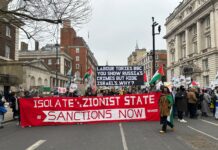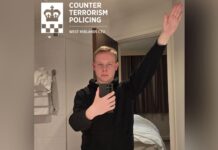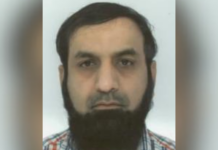Professor Tahir Abbas says that the Woolwich killing wasn’t inspired by al-Qaida.
The tragic incident relating to the murder of an unarmed soldier yards away from an army barracks in the area of Woolwich in London last night has made headlines across the world, brought back to England David Cameron who was away on business in Paris, and an emergency COBRA meeting was held in Whitehall, all of which have been quick to brandish this attack as an “Islamic terrorist incident.”
The shocking images of the blood-stained hands of the attacker, with a cleaver still visible in his left hand, and a motion-less body lying buckled in the middle of the road, has caused distress as well as considerable alarm among many actors and observers. It is has created a firestorm of opinion and counter-opinion, and endless commentary in an effort to shed light on this incident.
Lone wolf
There are some who are suggesting that this incident is the start of a wave of Islamist attacks across the country, the first since the tragic events of 7/7. There are others in the intelligence services, however, who are keener to push the “lone wolf” theory rather than the idea that there is something far more systematic or organised going on here. There is also speculation that these two men tried to behead the dead solider, but as of yet no single witness has come forward to sustain this particular claim. As the two men pranced around the dead body, apparently encouraging passers-by to take photographs on their internet-ready camera phones, the police arrived within minutes. When the two men approached the police officers, it is claimed that a female police officer fired three shots, two of which hit out the two assailants, both of whom were shot in the legs and badly injured as a result.
But what really gripes me are the endless line of media experts and journalists brandishing this event has having something to with Al-Qaida – that these two men were inspired by AQ – and that it is part of the global threat that is AQ-led or AQ-inspired Islamic terrorism. Even when David Cameron states that this act was a “betrayal of Islam and the Muslim communities which give so much to our country” is conflating a local social and political matter with that of a global religion.
However, his additional comment, “One of the best ways to defeat terrorism is to go about our normal lives and that is what we shall do,” is far more important and relevant given the sad reprisals instigated at the hands of the English Defence League who staged loud protests in Woolwich and with Mosques reportedly attacked all over the country. Londoners and people across the country are as a whole are asked to “stay calm and carry on.”
Subscribe to our newsletter and stay updated on the latest news and updates from around the Muslim world!
Dead soldier
My thoughts are with the family of the dead solider and the terrible, unexpected and unnecessary tragedy that has faced them. My thoughts are also with Muslim communities across the country that live in fear of their mosques being attacked, that their children will be picked on at school, that angry neighbours might become even angrier or that grandfathers walking home after late-night prayers at their local Mosques might face the wrath of angry young white-Englishmen.
Media and political actors have an immense responsibility to report the facts and minimize the rhetoric at a time when the nation watches television screens and reads newspapers horrified by this heinous crime. Sadly, balanced analysis is too quickly lost and replaced with sensationalist language and shocking headlines.
It agitates one set of people and distresses another, and it is at times like this that commentators talk of the “death of multiculturalism” when in fact Britain remains a diverse and cohesive country. The essential thrust here is that by focusing on this issue as one inspired by radical Islamism entirely misses the point and hands the agenda back to the Islamophobes, who will write, blog, tweet and stir anti-Muslim racism, all the while presenting it as balanced perspectives on this matter. It will then feed to radicalize existing angry young men who believe that their religion is being attacked by the West or specifically by British armed forces abroad.
This was a random violent murder first and last. How the two attackers justified their actions was merely a form of post-hoc rationalization that took advantage of the instant fame and notoriety that is provided with immediate access to social media and a primed audience susceptible to the ‘Islamic terrorism’ and ‘Muslim extremists’.
Tahir Abbas is Professor of Sociology at Fatih University in Istanbul, Turkey, and author of Islamic Radicalism and Multicultural Politics: the British Experience. www.tahirabbas.co.uk




















